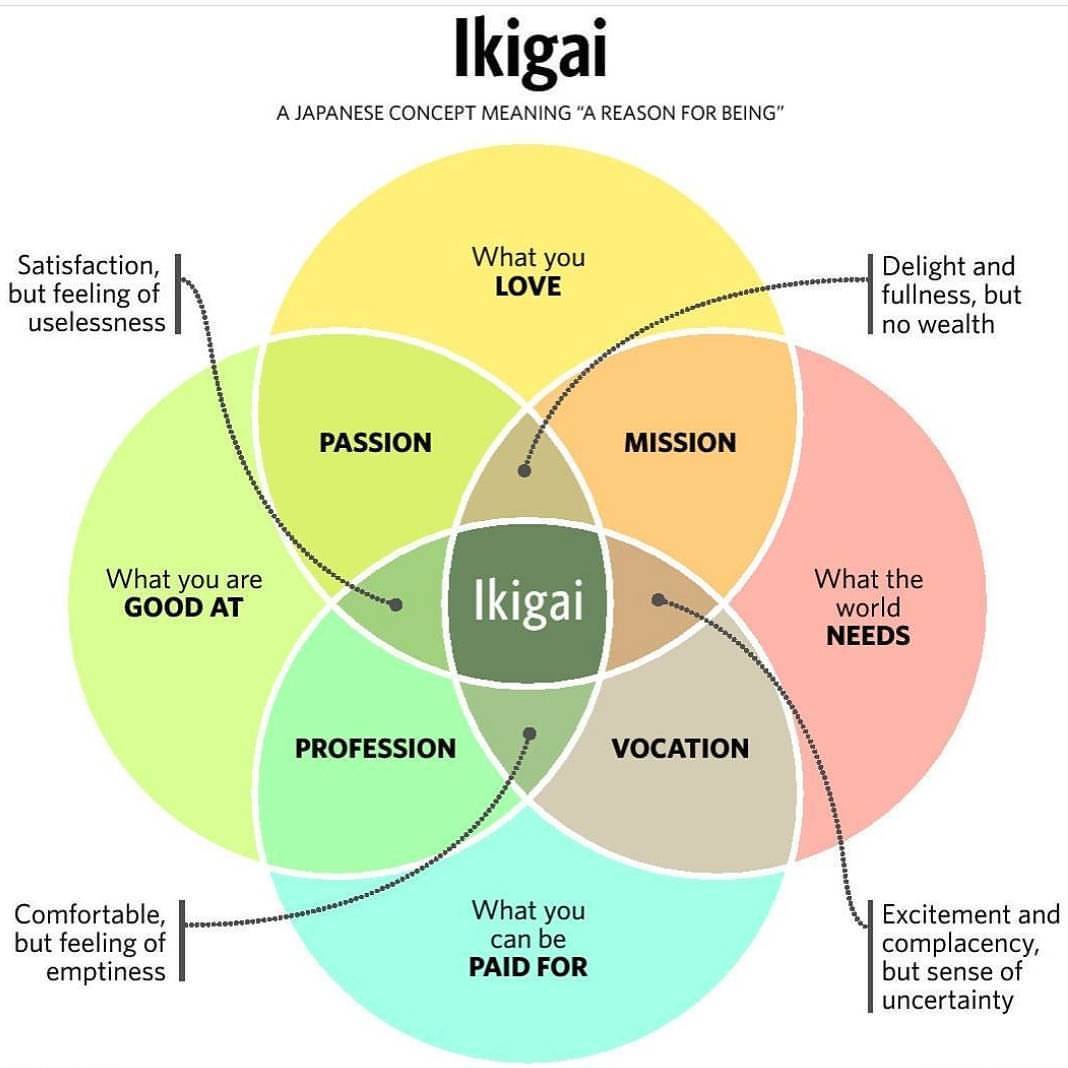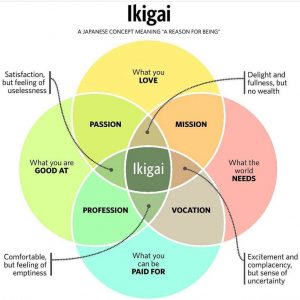Both the International Coach Federation and Forbes Coaches Council agree that defining your coaching niche is the single most effective action you can take to futureproof your coaching practice. Who am I to disagree?
Niche is the new mainstream
With more and more coaches entering the market every year, the marketplace has become increasingly saturated and commoditized. Categories that used to serve the industry in the old days (for example: life, business or executive coach) are no longer fit for purpose and need to be sub-categorised or niched in order for a coach to stand a chance in the crowded market place.

I have had so many clients come to me in desperation because they know that they are great coaches and they get great results when they’ve got clients, but they can’t translate that into a profitable and sustainable pipeline full of clients.
Their biggest challenge is being able to market themselves and sell their services in a way that seems authentic, and that doesn’t make them feel like they’re being sleazy or salesy. Without exception, when I ask them about their niche, they all say: “I can’t find my niche.”
The problem is that coaching, by its very nature, is a largely intangible concept that delivers intangible and unpredictable outcomes. Our challenge is to translate the work that we do, and the results that we deliver into something that clients can take to a budget or financial meeting.
Coaching is an intangible
As coaches, we are selling an intangible. I’ve seen coaches describe the work that they do with clients as “helping you become empowered to be the best version of yourself and maximise your true potential”…what is that? Of course, I want to be the best version of myself and maximise my true potential. It’s rather obvious. I think that everyone wants to do this. But becoming the best version of myself and maximizing my true potential are intangibles. So is developing higher levels of emotional intelligence and self-awareness.
Doesn’t it sound more compelling to work with a coach who specializes in helping newly-qualified coaches define your niche so that you can quickly establish a successful, sustainable and profitable coaching practice? You’ll still be maximizing your potential, but if you’re a coach who is struggling to get the right message in front of the right people, surely you’d want to work with someone who could guide you on the shortest route to success?
Similarly, imagine that your potential client is a manager. Wouldn’t they be more keen to work with a coach who can help them develop resilience and resourcefulness, manage conflict among team members and help them create a motivated and engaged team that delivers on targets?

What is a niche?
I’ve been running a workshop on how to market your coaching practice without spending a cent since 2011, and one of the exercises that I give my students is to get them to draw the first picture that comes to mind when they hear the word niche.
In all these years, I have only seen similar pictures twice, which confirms to me that niche is, but its nature, so niched and differentiated that everyone has a completely unique picture in their minds when they think of niche.
Just out of interest, what was the first picture that came to your mind?
So let’s look at some common definitions of niche:
Urban Dictionary defines a niche as “A position or activity that particularly suits somebody’s talents and personality or that somebody can make his or her own.” What is interesting about this definition is that it definitely focuses on the individual (in this case the coach) and not the client.
A broader definition of niche comes from www.businessdictionary.com, “Concentrating all marketing efforts on a small but specific and well-defined segment of the population. Niches do not ‘exist’ but are ‘created’ by identifying needs, wants, and requirements…As a strategy, niche marketing is aimed at being a big fish in a small pond…” Here the focus is more on the needs of the potential client.
I think the sweet spot is one that takes both extremities into account.
How is niche pronounced?
Neesh or nitch…there are as many ways to pronounce the word as there are definitions and ideas about what a niche really is.
There really is no wrong way to pronounce it: whatever feels comfortable and natural for you.
The “neesh” pronunciation is more commonly used in European countries while “nitch” is more commonly used in USA.
Why niche – to niche or not?
Well, when I first became a coach in 2002, there were only a few coaches in the market. It was estimated that there were only about 10,000 – 15,000 coaches in the world at that time compared to the current official estimates of 50 thousand plus and growing at a rapid rate.
Coaching has been identified as one of the fastest growing industries. It is also an industry that doesn’t have an age limit – in fact, the majority of top coaches are 55+ years old, and have been in the industry for at least 10 years.
It is the kind of industry or profession that anyone can enter, provided they have the wish to do so. It has low barriers to entry – anyone can have a business card printed, calling themselves a coach – and the scary thing is that it is a largely unregulated industry and profession.
To show this proliferation, the official estimate that I’ve quoted above is the sum of the published membership figures of a number of professional coaching bodies around the world. However, if you go onto social media, LinkedIn alone currently lists well over 120,000 executive coaches. That doesn’t even begin to take into account the 150,000+ business coaches and so on.
How can anyone hope to get to the first page of search results?
These categories have become commodities, and you really need to be something special to stand out from the crowd. It is no longer a differentiator to describe yourself as a business coach, a life coach or an executive coach.

The only exceptions to this rule are those coaches who are at the top of their game and who have been in the industry for 20 years or more. They have become NAMES in the industry and have enough of a pool of past clients to keep their pipeline continually filled with word-of-mouth referrals – far and away the most effective means of getting clients.
This is why, if you are a more recent newcomer to the coaching profession, defining your niche is one of the most important things you can do to future-proof and crash-proof your coaching practice.
But how do you define your niche if you don’t have any experience?
You niche is the intersection of what you enjoy, what you are good at and your purpose in life. This includes who you work most effectively with, who you get the best results with and whose needs you match most closely.
It is about you and your potential client. It’s your zone of excellence.
The Japanese have a concept called ikigai that perfectly embodies the concept of niche. Your “ikigai” consists of 4 key areas:
Your passion
Your vocation
Your profession
Your mission
Where passion and mission intersect, you are doing what you love.
Where mission and vocation intersect, you are giving the world what it needs.
Where vocation and profession intersect, you are doing what you can be paid for.
Where profession and passion intersect, you are doing what you are good at.
Your “ikigai” is the sweet spot right at the centre, where doing what you love, what you are good at and what you can be paid for is also giving the world what it needs. This, I believe, is where your niche resides.

How does niche marketing work?
I did an online search around the term “business coach” to see what people are looking for. I was interested to see that there were specific searches for business coaches who specialize in strategy, creative thinking, project management, accounting, photography, financial advisors, therapists, artists, lawyers, construction, interior decorators and even spiritual entrepreneurs, moms working from home, start-ups, solopreneurs. There are even business coaches for health coaches, life coaches and wellness coaches! So, coaches are searching for coaches! What it tells us is that people are looking for coaches who can understand their world view, their specific challenges and the intricacies of their industries.
The market is becoming more sophisticated and is differentiating within the different categories of coaching, looking for coaches that more closely meet their specific needs. This is why there is a place for every good coach, no matter what niche you choose. Its about your worldview intersecting with that of your client, and your ability to hold, validate and challenge their perspective. This is why niche marketing is successful.
How niche is too niche?
I want to talk about MILK for a moment. You may wonder what milk has to do with niche, but it’s a great example of a category in which there is WIDE differentiation. First, you can choose pasteurized or unpasteurized. Then you might look at the fat percentage: full cream, low fat or fat free. And let’s not forget long-life. We can even get lactose free cow’s milk nowadays, and if you don’t want to drink cow’s milk, then you can get sheep or goat’s milk. And if you don’t want an animal product at all, you can choose from almond, rice, soya, or coconut milk and the list is endless. There is a milk or milk-like product for anyone, no matter what their food intolerances, allergies or preferences are. And that’s the same with a coaching niche.

There are coaching clients for every niche. Coaching has become increasingly democratized, meaning that more and more people have access to coaching through the workplace or by paying for a coach privately. It is these private clients who have more discretion to choose which coach they want to work with, and on what.
What is important is to be consistent, clear and focused in your marketing so that your message gets to your ideal client. And that brings me to my next point.
Niche is functional
Defining your niche helps you work smarter and not harder. It allows you to focus where and how you spend your time honing your expertise. There are lots of shiny, new things being introduced to the coaching world all the time – new assessments, profiling tools, tools to use in your coaching sessions and so on. Being clear on the work that you excel at and your niche will give you the ability to assess whether or not these will add value to your practice.
It also means that you can market in a more targeted way. The reality is that – as coaches – we are mostly solopreneurs. We don’t have dedicated marketing departments and massive marketing budgets. We have to manage our time and our resources carefully.
Personal or word-of-mouth referrals are 10 times more likely to bring you coaching business than any other means of marketing. By defining your niche, you make it so much easier for people to know who to refer to you. You become the “go-to” person.
With social media affecting our attention spans, we have ever-decreasing flashes of time in which to get our client’s attention. Being able to communicate with crystal clarity about what you do, how you get your results and who you get your best results with is increasingly important. You have to capture my attention before it drifts off to the next thing that catches my eye. AND YOU HAVE TO KEEP MY ATTENTION!
Define your niche – where to start?
There are 4 ways of segmenting your potential clients:
Geographic (language, nationality, physical location)
Demographic (age, gender, height, life-cycle stages, income)
Behavioural (behaviour, usage, decision-making)
Psychographic (lifestyle, activities, interests, opinions, beliefs)
Try filling in the blanks:
My niche is that I help/assist/coach/guide/teach/enable my clients, who are…to…by…
The way that I do this/get results is…and…and…
What effect does defining your niche have on your coaching business?
Defining your niche
- Distinguishes you/your products/your services from everyone/everything else;
- Differentiates you;
- Gives you credibility, authority and authenticity;
- Allows you to target your message at your ideal client;
- Creates your subject matter expertise because it’s what you focus on;
- Allows you to work smarter and not harder, doing what you love to do;
- Makes you a voice that is listened to.

Ultimately, defining your niche makes you an influencer – someone that people respect, whose opinions people listen to, and someone that people refer to. Most of all, it allows you to determine and control your future and your success.

